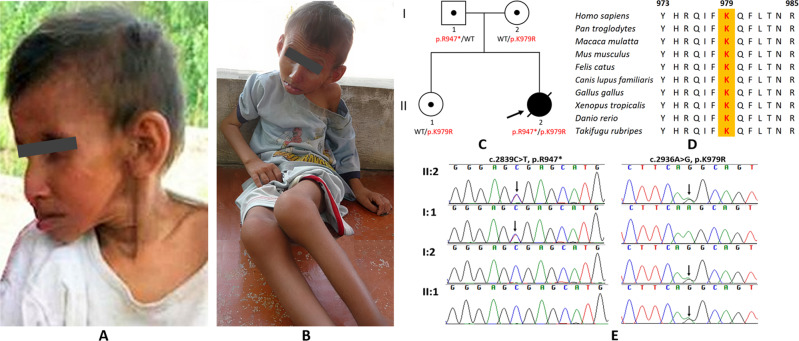Whole-exome sequencing revealed a novel ERCC6 variant in a Vietnamese patient with Cockayne syndrome.
IF 1
Q4 GENETICS & HEREDITY
引用次数: 1
Abstract
We describe a case of Cockayne syndrome without photosensitivity in a Vietnamese family. This lack of photosensitivity prevented the establishment of a confirmed medical clinical diagnosis for 16 years. Whole-exome sequencing (WES) identified a novel missense variant combined with a known nonsense variant in the ERCC6 gene, NM_000124.4: c.[2839C>T;2936A>G], p.[R947*;K979R]. This case emphasizes the importance of WES in investigating the etiology of a disease when patients do not present the complete clinical phenotypes of Cockayne syndrome.

全外显子组测序在越南柯凯因综合征患者中发现了一种新的ERCC6变异。
我们描述了一例柯凯因综合征无光敏性在一个越南家庭。由于缺乏光敏性,16年来一直无法确定确切的医学临床诊断。全外显子组测序(WES)鉴定了ERCC6基因的一个新的错义变异,NM_000124.4: c.[2839C>T;2936A>G], p.[R947*;K979R]。本病例强调了当患者未表现出柯凯因综合征的完整临床表型时,WES在调查疾病病因方面的重要性。
本文章由计算机程序翻译,如有差异,请以英文原文为准。
求助全文
约1分钟内获得全文
求助全文
来源期刊

Human Genome Variation
Biochemistry, Genetics and Molecular Biology-Genetics
CiteScore
2.30
自引率
0.00%
发文量
39
审稿时长
13 weeks
 求助内容:
求助内容: 应助结果提醒方式:
应助结果提醒方式:


